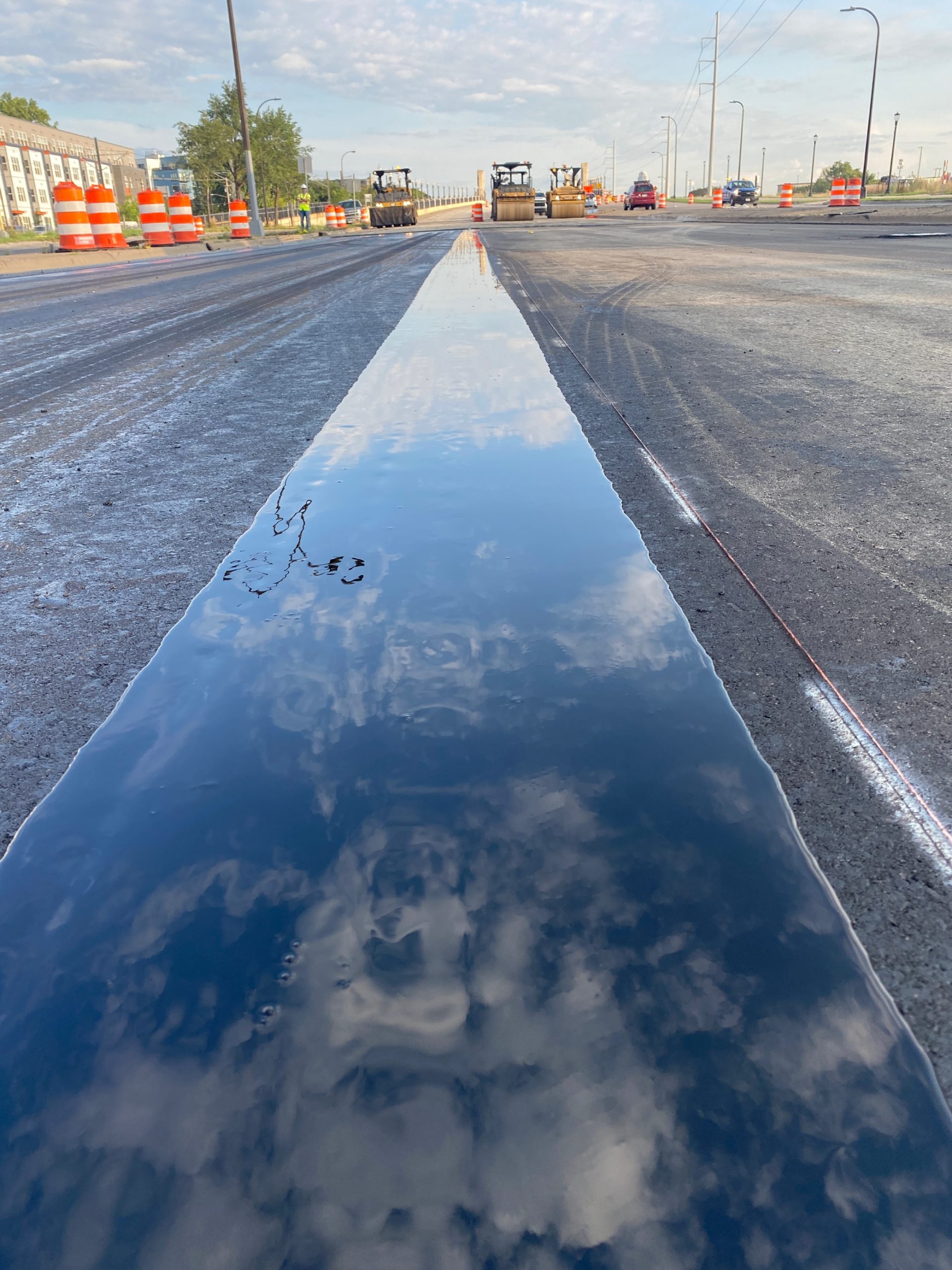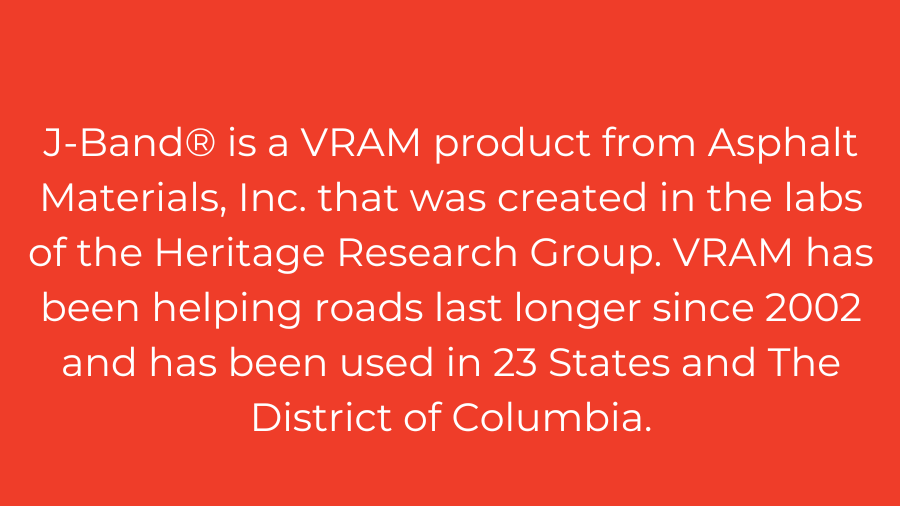About this project:
A Void Reducing Asphalt Membrane, (VRAM), project took place on August 3rd & 8th in Hennepin County, Minnesota. This was a Minnesota Department of Transportation (MnDOT) project.
On both August 3rd and the 8th, a Void Reducing Asphalt Membrane, (VRAM), project took place on Trunk Highway 55. The VRAM application started at Route 62 going northward to East 32nd Street. MnDOT specified VRAM to be applied to the centerline joint in Hennepin County. This particular project had a VRAM application targeted at 18” wide.
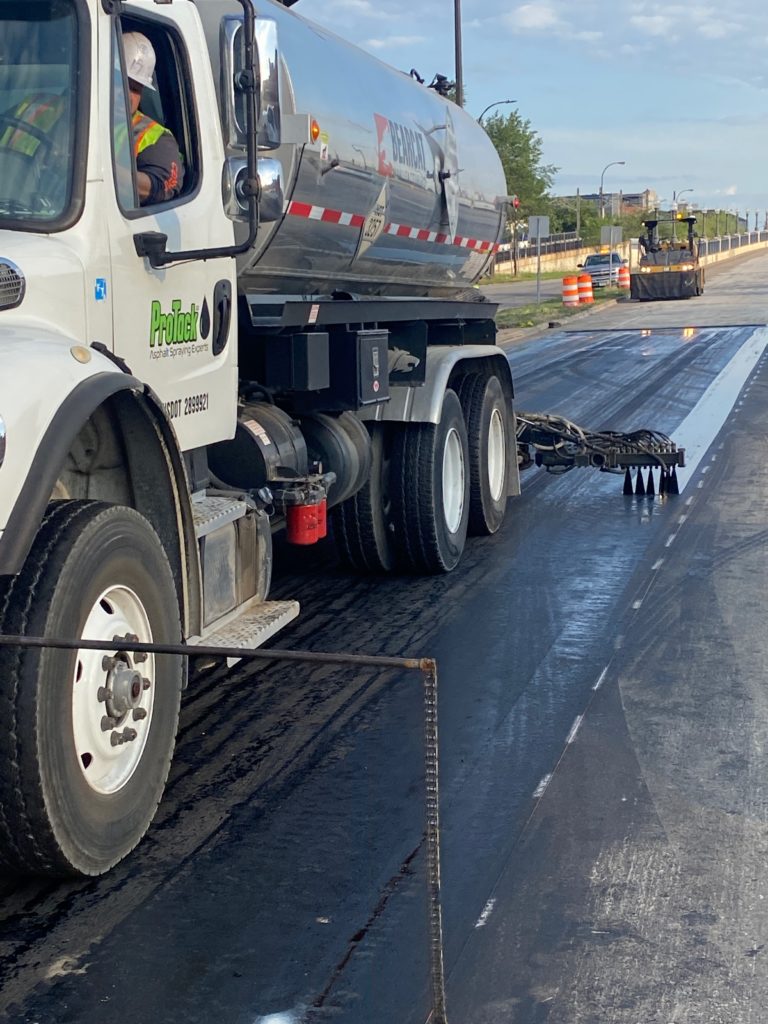
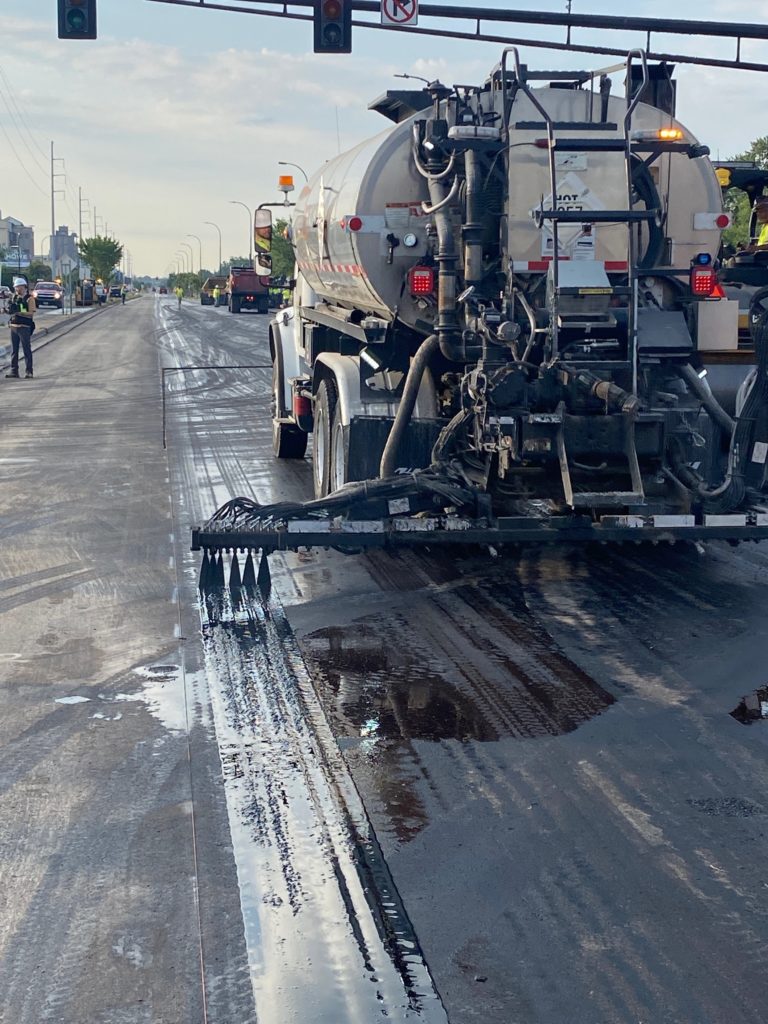
A Responsible Way to Steward Public Resources.
Protecting the longitudinal joint is the most important part of the road to protect because it is the most susceptible part of the road. Placing VRAM at the time of construction has been proven to be an excellent way to utilize infrastructure dollars, because it helps reduces the number of maintenance projects and therefore costs.
The first project of the J-Band® application began in the early morning of August 3rd and continued into the early afternoon. The bandwidth for J-Band application was targeted at 18” wide, with application going northbound in the northbound lanes.
The applicator for this project was ProTack.
The prime paving contractor was Minnesota Paving & Materials (MPM).
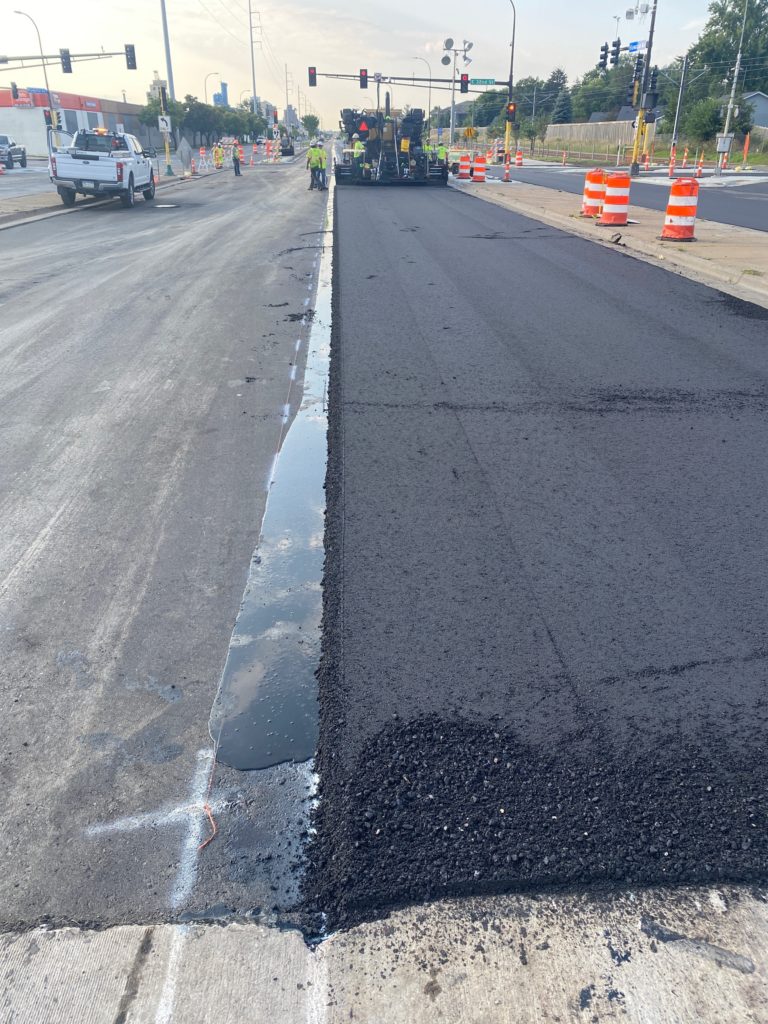
The asphalt paving operation began shortly after the application of J-Band. The paving train consisted of a Roadtec SB2500 MTV, a CAT AP1055F paver, a CAT CB15 – 12-ton breakdown roller, 2-CAT CW34 – 30-ton intermediate pneumatic rollers, and a CAT CB66B –12 -ton finish roller. The breakdown roller was making 3 vibratory passes along with 5 passes with the intermediate rollers, and 2 passes with the finish roller. This project wrapped up successfully.
The second J-Band application took place on August 8th. This project began in the early morning of August 8th and continued into late morning. The bandwidth for this project was also targeted at 18” with application going northbound in the northbound lanes.
The applicator and prime paving contractor on the 8th was also ProTack and Minnesota Paving & Materials (MPM), respectively.
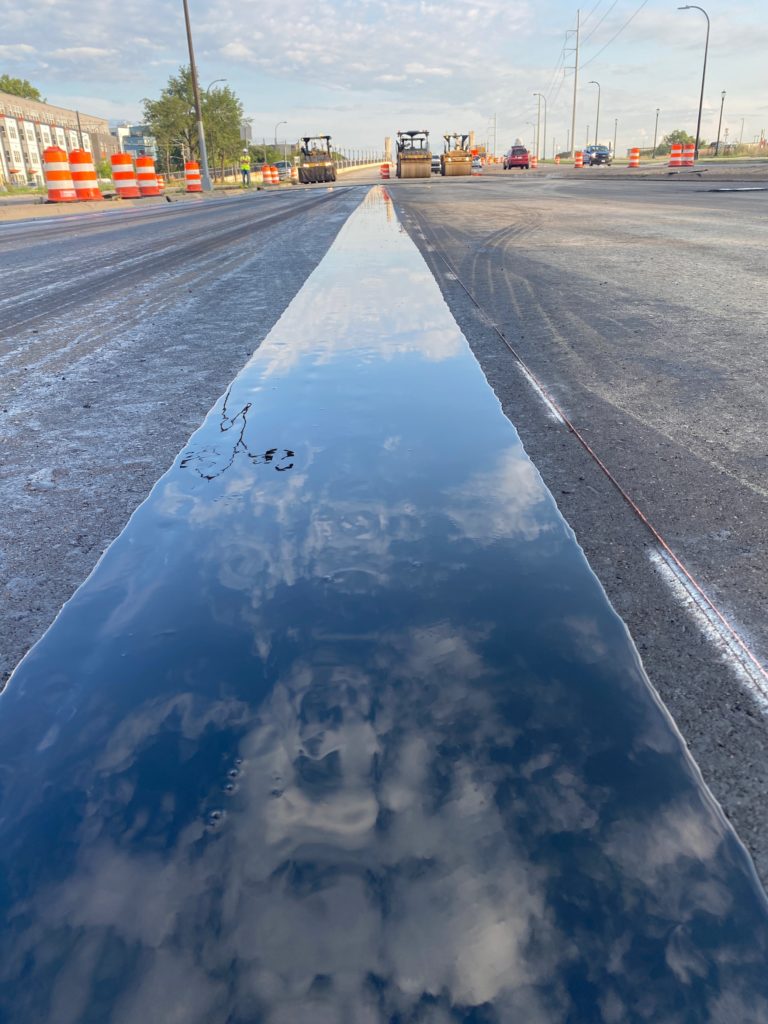
The Asphalt Paving Operation began shortly after the application of J-Band. The paving train consisted of a Roadtec SB2500 MTV, a CAT AP1055F paver, 2-CAT CB15 – 12-ton breakdown rollers, a CAT CW34 and a Hamm GRW 280- 30-ton intermediate pneumatic rollers, and a CAT CB66B –12 -ton finish roller. The breakdown roller was making 3 vibratory passes along with 5 passes with the intermediate rollers, and 2 passes with the finish roller.
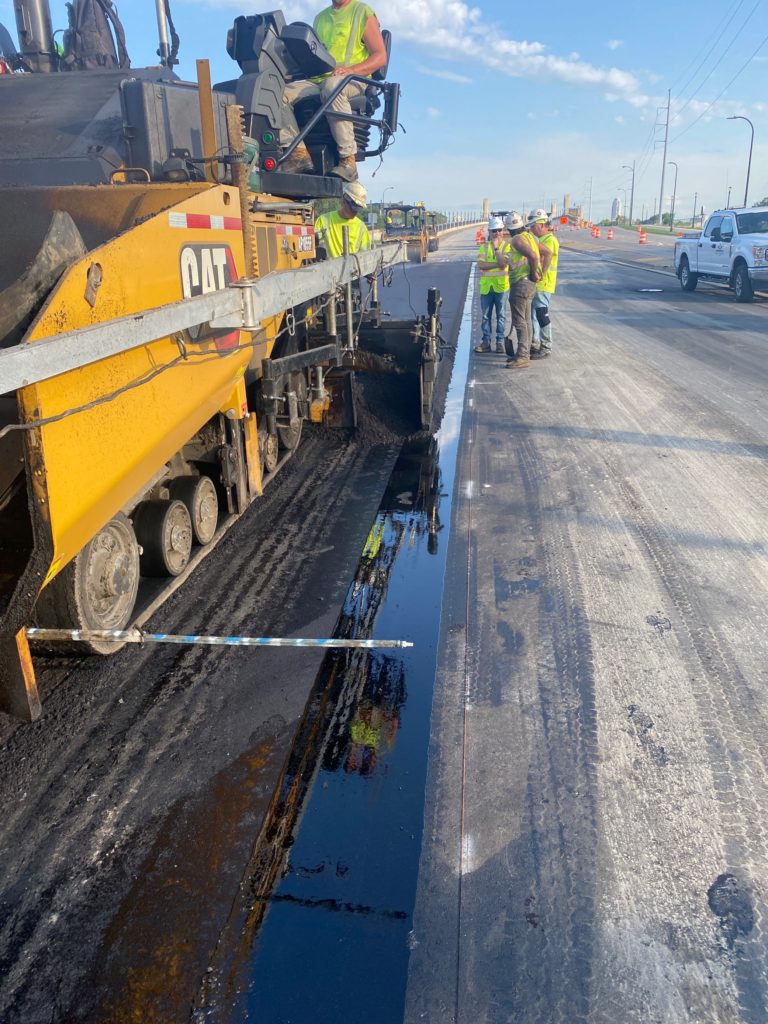
VRAM creates longer-lasting, safer roads which leads to a more resilient and reliable infrastructure and supply chain. Longer-lasting roads save time, money, and lives. And when roads last longer with VRAM, infrastructure dollars go further, with a return on investment of 3 to 5 times its initial cost.
There are several studies involving VRAM that you may be interested in reading. You can access them by clicking this link:
Editor’s Notes:
Centerline joints and longitudinal joints are often used interchangeably in describing the area of the pavement where two sections come together.
VRAM, Void Reducing Asphalt Membrane is referred to in Illinois as LJS, Longitudinal Joint Sealant.
Depending on the situation VRAM can be sprayed at different width’s. It should be noted that 18” is a typical application width for centerline applications.
J-Band® is a VRAM product of Asphalt Materials, Inc. that was created in the labs of The Heritage Research Group.

